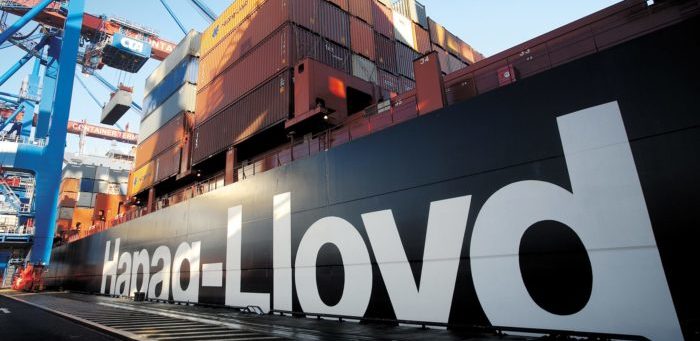Hapag-Lloyd will limit its costs to deal with increasing fuel prices that caused the company to cut its current profit outlook. Namely, as the company’s CEO, Rolf Habben Jansen noted, costs increased more than expected, something that puts pressure on the operating margins.
As Reuters reports, Hapag-Lloyd will start accepting more valuable cargo, reducing terminal contract costs and removing economically inefficient ship systems.
Hapag-Lloyd will now revise its current profit outlook. Specifically, increased operational costs, mainly related to high fuel prices, made the company reduce its outlook.
As Hapag-Lloyd explained in a statement:
Reason for that is an unexpectedly significant and continuing increase in the operational costs since the beginning of the year, especially with regard to fuel related costs and charter rates combined with a slower than expected recovery of freight rates.
The company is not able to balance these developments with cost saving measures that have already been initiated, so it cut its profit outlook.
[smlsubform prepend=”GET THE SAFETY4SEA IN YOUR INBOX!” showname=false emailtxt=”” emailholder=”Enter your email address” showsubmit=true submittxt=”Submit” jsthanks=false thankyou=”Thank you for subscribing to our mailing list”]
In addition, as part of the continuous consolidation trend in the container shipping industry, France’s CMA CGM, which is currently the third biggest container line, has reportedly made an exploratory approach to German Hapag-Lloyd, the world’s fifth line, over a possible form of merger.
The news is not confirmed and more details are yet to be revealed. A Reuters source suggested that the French giant has initiated discussions with the German company over the issue in recent months, regarding a proposal of a non-cash merger, but Hapag-Lloyd stakeholders do not seem positive on a potential integration at the moment.
What is more, the increasing fuel prices are affecting more and more companies.
In late May, Maersk, MSC, and CMA CGM, making up together more than 45% of the global container capacity, announced introduction of Emergency Bunker Surcharges, due to increasing fuel costs. This has erupted a wave of concern from global stakeholders of the maritime industry, including the Global Shippers Forum (GSF), the European Shippers’ Council (ESC), and the British International Freight Association (BIFA).
According to online freight forwarder iContainers, the EBS may be seen as a side effect of some as carriers’ efforts to inject more pricing transparency, but a better and more sustainable solution will be needed in the long run.

































































